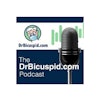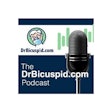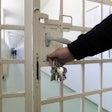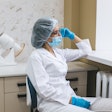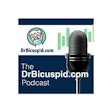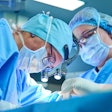Dental health is no trivial matter in the Army National Guard, where 55% of all soldiers are considered nondeployable because of dental disease or lack of a recent dental exam.
So reports a recent article on the National Guard Web site. This staggering number was confirmed by Col. Daniel Savitske, chief dental officer of the Army National Guard, in an interview with DrBicuspid.com.
What kind of dental disease would make a soldier undeployable?
"Anything that could result in a dental emergency within a year," Col. Savitske said. "It could be caries, a large carious lesion that could result in an abscess, or periodontal disease, etc."
That is not to say that 55% of the soldiers have dental disease. Some are undeployable simply because they have not had a recent dental exam. Overall, the National Guard's dental conditions parallel those of the general population, Savitske noted.
But a U.S. Department of the Army memorandum should have an important impact on this number. Signed on February 11 by Assistant Secretary of the Army Ronald James, the memorandum calls for dental examination and treatment of all soldiers regardless of their alert status.
Currently, only soldiers whose units have been alerted for mobilization are eligible for treatment. A unit is considered to be on alert when it is scheduled to deploy (usually overseas) within a year.
"Right now we are meeting the mission of deploying healthy soldiers, but we would like to expand this service to all soldiers so they are always ready," Savitske said.
In recognition of this problem, Sen. Hillary Clinton and Sen. Mark Pryor introduced legislation (S. 2854) on April 15, 2008, that would extend medical and dental benefits for members of the National Guard preparing for deployment.
"A failure to maintain medical or dental readiness often causes reserve component members to be rated "non-deployable,'" stated a press release issued by Sen. Clinton's office announcing the proposed legislation. The new legislation "would provide all members of the National Guard and Reserve with active duty military healthcare as soon as they, or their units, are alerted for deployment, instead of waiting until they receive formal activation orders.... This would increase the likelihood that their medical and dental needs will be addressed early and they will be fit to deploy with their unit."
The Department of the Army memorandum goes a step further, requesting dental treatment for all soldiers. Expanding dental treatment to include the entire National Guard would require an annual budget of approximately $107 million, according to Savitske. Currently the National Guard annual expense for dental exams and treatment during alerts is $50 million to $60 million. All funding for treatment will be authorized and channeled through the Army.
"Even though $107 million may sound like a lot of money, it is for more than 330,000 soldiers, so it isn't a lot per soldier above what is already spent on just exams and x-rays," Savitske stated in the National Guard Web site article. "The majority of soldiers with problems that make them non-deployable can be treated to standard quickly and at low cost. And many of the fixes are long term, thus reducing the costs over time."
National Guard soldiers cannot typically be treated at an army dental clinic, where they are accommodated on a space-only basis. The National Guard can employ 300 dentists but currently has only 156. Most of the new work will be contracted out to civilian dentists and clinics, Savitske explained. (Several U.S. companies provide outsourced healthcare services to the military.)
"We are looking toward operationalizing the National Guard, and we need to meet requirements similar to those of the Army," Savitske said. Ultimately, "it will greatly improve the efficiency of the Army."
For more information on the Army National Guard dental program, visit the National Guard Web site.

